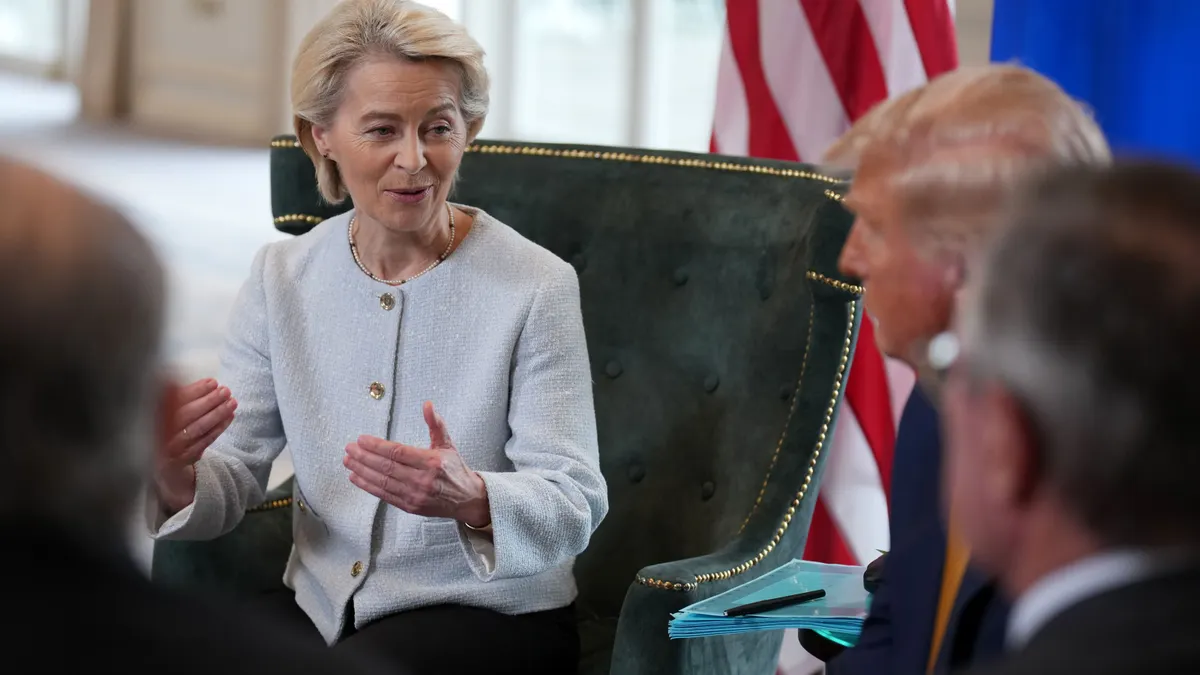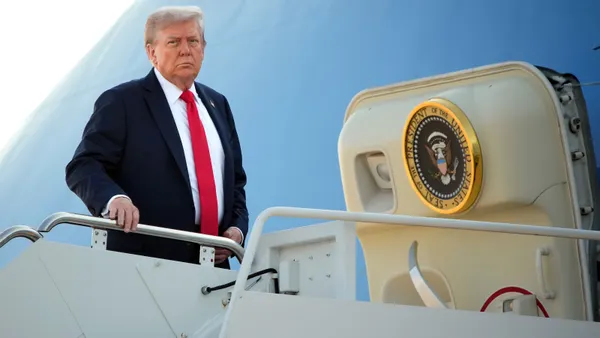The European Union will delay the implementation of its countermeasures to U.S. tariffs that were meant to go into effect Thursday by six months, according to Olof Gill, European Commission spokesperson for trade.
The commission plans to adopt the necessary measures to implement the pause on Tuesday, per Gill.
Last month, the commission approved a regulation that would have installed levies of up to 30% on a swath of U.S. goods on Aug. 7. The measure passed days before European Commission President Ursula von der Leyen met with U.S. President Donald Trump in Scotland for trade negotiations.
Those discussions led to a framework deal in which the U.S. agreed to lower planned tariffs on imports from the bloc from 30% to 15%. Under the pact, the bloc agreed to purchase $750 billion in U.S. energy exports and make a $600 billion investment in the country.
“This deal provides a framework from which we will further reduce tariffs on more products, address non-tariff barriers and cooperate on economic security, because when the European Union and the United States work together as partners, the benefits are tangible on both sides,” von der Leyen said after the two leaders announced the agreement, adding that “details have to be sorted out.”
Days later, Trump signed an executive order placing country-specific reciprocal duties on over 60 trading partners, including a 15% rate for imports from the EU, effective Aug. 7.
“The EU continues to work with the US to finalise a Joint Statement, as agreed on 27 July,” Gill said.
The EU has now delayed its countermeasures to U.S. tariffs three times, first announcing its intention in May to levy tariffs on 95 billion euros (roughly $107 billion at the time of announcement) of U.S. goods.
The bloc was also readying additional countermeasures covering 72 billion euros (roughly $84 billion) of U.S. imports, Commissioner for Trade and Economic Security Maroš Šefčovič said on July 13.













